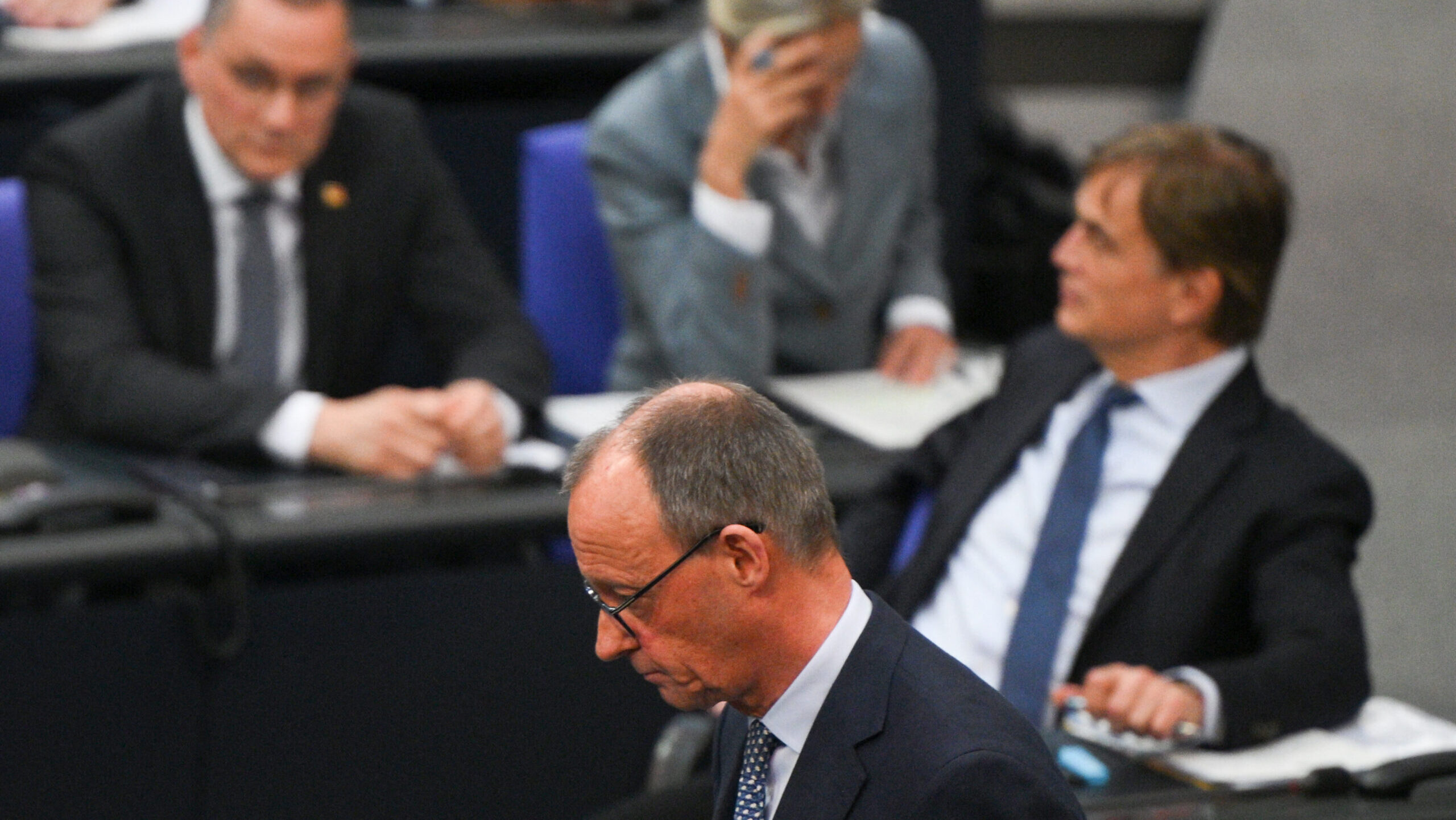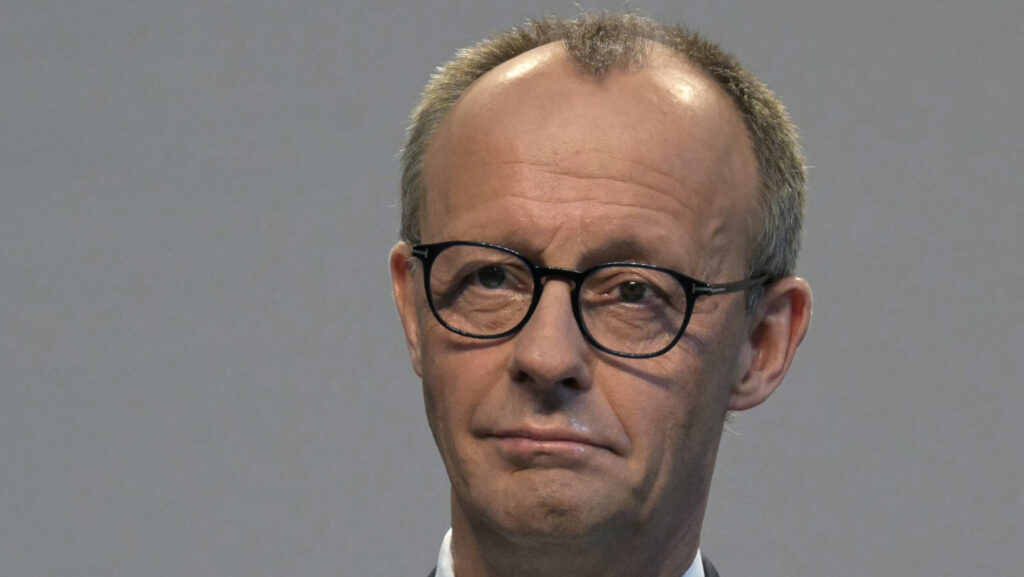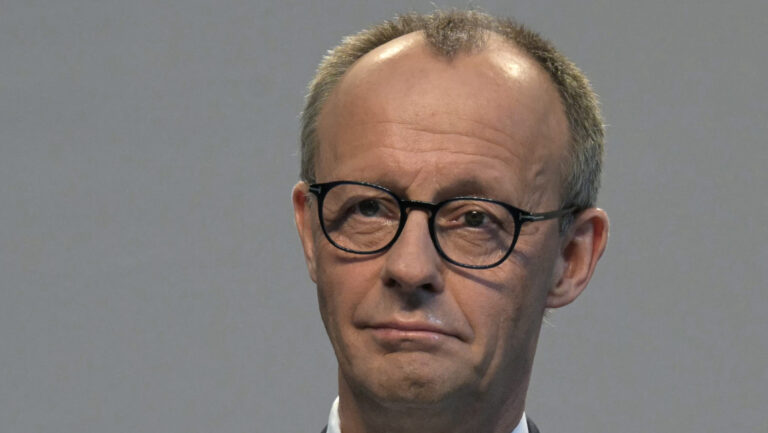Right-wing, anti-immigration Alternative für Deutschland (AfD) is polling at 24.5 per cent, according to a survey conducted by INSA for the German outlet Bild on Monday. This not only marks record-high support for Alice Weidel’s party, but also puts it on equal footing with the Christian Democratic Union (CDU), which won the elections on 23 February.
‘People want reasonable policy for Germany,’ AfD co-chair Weidel wrote in a post on X on Monday, adding that neither the CDU nor the Social Democratic Party (SPD) can provide that for the German people. The SPD—whose loss of both public and legislative confidence in late 2024 ultimately led to early elections—is set to be the junior coalition partner under the CDU, forming a government that is rightly described as a ‘coalition of losers’.
Alice Weidel on X (formerly Twitter): “Der Aufwärtstrend für die AfD in den Umfragen verfestigt sich! Es wird immer deutlicher: CDU/CSU und SPD können es nicht! Die Bürger wollen, dass jetzt endlich angepackt und eine vernünftige bürgerliche Politik für Deutschland gemacht wird! pic.twitter.com/H4wbaRPlz8 / X”
Der Aufwärtstrend für die AfD in den Umfragen verfestigt sich! Es wird immer deutlicher: CDU/CSU und SPD können es nicht! Die Bürger wollen, dass jetzt endlich angepackt und eine vernünftige bürgerliche Politik für Deutschland gemacht wird! pic.twitter.com/H4wbaRPlz8
The CDU won 28.5 per cent of the vote in February but has since lost 4 percentage points in just over a month. In contrast, AfD secured 20.8 per cent in the early elections, indicating that nearly all disillusioned CDU voters migrated to AfD. Other parties, such as the SPD and the Greens, are polling at roughly the same levels as in the election. Die Linke (The Left), however, has managed to increase its support by 2 percentage points.
CDU Post-Election U-Turn
This downward trend for the CDU would ordinarily demand serious analysis—were it not so obvious. The reason is clear: Merz has betrayed his voters, acting in direct contradiction to nearly every major campaign promise. His personal approval rating reflects this disillusionment even more starkly than that of his party: the soon-to-be Chancellor has lost 10 percentage points in support, down to 25 per cent since February.
There are multiple examples. One only needs to recall Merz’s interview with Brussels-based POLITICO, just two days before the election. The CDU leader warned that the ‘next financial crisis’ was imminent and declared it would spell the ‘end of the fantasy of all social democrats’ to take on more debt. ‘We’ll have to make do with the resources we have,’ he said.
Yet, within three weeks, Merz drastically reversed course, pushing through a 500 billion euro defence package via the Bundesrat. To do so, the CDU and SPD had to amend Germany’s constitutionally enshrined fiscal rules to loosen debt constraints. In short, Merz spat in the face of the conservatives who voted for him to stop the left’s spending spree. Both AfD and Die Linke opposed the measure, but with the support of the Greens, it passed into law.
‘Merz has betrayed his voters, acting in direct contradiction to nearly every major campaign promise’
And that is far from all. It now appears increasingly likely that Merz will also fail to deliver on his promises regarding illegal migration. During his campaign, he pledged a firm response to Germany’s worsening internal security crisis, exacerbated by a wave of terror attacks committed by migration-linked perpetrators. Over the past year, these attacks have claimed innocent German lives—from Munich to Aschaffenburg, from Mannheim to Magdeburg.
The CDU’s campaign promised permanent border controls, the rejection of individuals attempting illegal entry, and stricter detention for those awaiting deportation. Merz also vowed that anyone without valid entry documents would face a de facto entry ban. He was fiercely critical of the European Union’s migration policy, describing it as ‘visibly dysfunctional’.
However, coalition negotiations do not suggest a conservative outcome on this issue either. According to The Telegraph, CDU negotiators are expected to dilute plans to turn back large numbers of asylum seekers at the borders. One proposed compromise could involve accelerating the return process, but only by sending asylum seekers back to neighbouring countries.
Jens Spahn, a senior CDU MP, has insisted that Germany does not need permission from its neighbours—such as Austria—to reject asylum seekers at the border. However, the SPD is reportedly demanding that rejections occur only with the consent of neighbouring countries.
Feeling Betrayed
Merz’s reversal is not only disappointing—it is politically disastrous. In an open letter to the CDU leader, members of the party’s youth organization in Cologne described the current situation as ‘a political disaster and a great disappointment for the many committed members of the grassroots.’ The letter continued:
‘Mr Merz, we believed in your political leadership. We trusted you. And we have fought for you. But we are now asking the question: for what? For a CDU that submits to the left-wing mainstream?’
The message concluded with a warning: if this course continues, it will not only damage the CDU’s profile but destroy the trust of the people and the commitment of its members.
In contrast, AfD appears unstoppable. The right-wing party has been on the rise since December, gaining around 6 to 7 percentage points in support. It also broke out of international isolation in February, thanks to Hungarian Prime Minister Viktor Orbán, who welcomed Alice Weidel in Budapest on 12 February. ‘Orbán made it clear that he views AfD as the future of Germany. He argued that when a ruling elite goes against its electorate, it is inevitable that the people will support the party that truly represents their interests,’ Hungarian Conservative reported from the meeting. The fact that less than two months later Orbán’s words appear strikingly prophetic is remarkable.
‘Orbán understands something Merz is only beginning to learn: betraying your own people and your voters is not profitable’
While coalition talks continue, reports have surfaced that the CDU and SPD have reached an agreement on EU affairs including a push to punish Hungary for its dissenting stance on Ukraine. We strongly urge both parties, particularly the CDU and Merz, to examine Hungary’s position more carefully. Hungary opposes Ukraine’s fast-tracked EU membership and the escalation of military support. That position is not arbitrary—it is backed by a democratic mandate. Orbán won a sweeping re-election victory in 2022, campaigning on one central promise: to keep Hungary out of war and to advocate for peace in Ukraine. That is exactly what he has done.
Despite relentless pressure from Brussels and Western European leaders, Hungary has not changed its position—and will not do so in the future either. Because Orbán understands something Merz is only beginning to learn: betraying your own people and your voters is not profitable.
Related articles:








